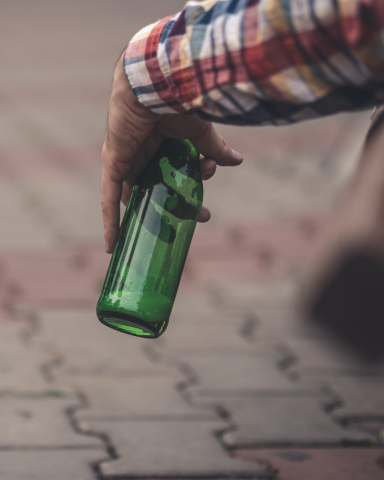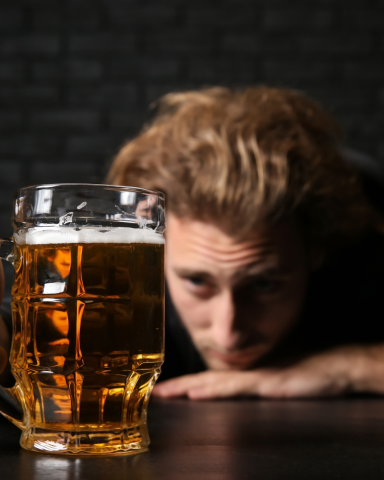
What is Public Intoxication?
Public intoxication, also known as “drunk in public” or “being drunk in public,” is a criminal offense that occurs when a person is visibly impaired due to alcohol or drugs in a public space, and their behavior is disruptive or poses a danger to themselves or others. While laws vary by jurisdiction, the basic principle behind public intoxication is that individuals should not be allowed to engage in dangerous or disruptive behavior while intoxicated in public areas.
Common signs of public intoxication include:
- Slurred speech
- Unsteady or erratic movements
- Loud or aggressive behavior
- Vomiting or stumbling
- Endangering oneself or others, such as by attempting to drive while intoxicated
- Disturbing the peace or acting in a way that causes alarm to others
It’s important to note that simply being intoxicated in public does not necessarily lead to a charge of public intoxication. The behavior must go beyond mere drunkenness to create a disturbance or present a risk to public safety.
How is Public Intoxication Determined?
Public intoxication is typically determined by the behavior and the visible signs of impairment. Several factors are taken into account:
Visible Signs of Intoxication:
The most critical element of a public intoxication charge is the officer’s observation of visible signs of intoxication. These may include erratic behavior, slurred speech, and difficulty walking or maintaining balance. The officer may also look for the smell of alcohol or other drugs.
Disruptive Behavior:
Simply being drunk in public is not usually enough to justify an arrest. The person must be engaging in behavior that disrupts the peace or safety of the community. This can include arguing loudly, fighting, disturbing businesses or residents, or acting aggressively toward others.
Endangerment:
If the individual is putting themselves or others at risk — for example, attempting to drive while intoxicated or walking into traffic — this can contribute to the charge. In some cases, authorities may decide to take a person into protective custody to avoid harm.
Location:
Public intoxication charges typically occur in open, public spaces such as streets, parks, or public transportation areas. Being intoxicated at home or on private property generally does not lead to a public intoxication charge, unless the behavior spills into public spaces or disrupts the peace.
Interaction with Law Enforcement:
If law enforcement officers respond to a call or witness the behavior directly, they will determine if the person is intoxicated based on their observations and any interactions they have. In some cases, breath or field sobriety tests may be used to confirm intoxication, though the focus is often more on behavior than specific blood alcohol content (BAC) levels.
How Can a Criminal Lawyer Help?
If you’ve been charged with public intoxication, it’s important to understand that, while it may seem like a minor offense, it can still carry serious legal consequences. Here’s how a criminal lawyer can assist you:
Reviewing the Circumstances:
A skilled attorney will examine the facts of your case, including how you were arrested, the nature of your behavior, and the circumstances leading up to the charge. They will ensure that law enforcement officers followed proper procedures and acted within their legal authority.

Challenging the Evidence:
If the arresting officers didn’t have sufficient evidence or reasonable cause to charge you with public intoxication, your lawyer can challenge the validity of the charge. For instance, if there was no disruption or danger posed, your lawyer can argue that the intoxication did not meet the legal threshold for public intoxication.
Defending Against False Claims:
If you believe that you were wrongfully accused or that the officer misinterpreted your behavior, your lawyer will fight to protect your reputation and your rights. They will seek to uncover any inconsistencies in the officer’s testimony or other evidence.
Negotiating with Prosecutors:
In cases where the evidence is strong, an experienced criminal defense lawyer can work with the prosecution to potentially reduce charges or penalties. This might include pleading to a lesser charge or negotiating for alternatives like fines, probation, or attending a rehabilitation program.
Protecting Your Record:
A conviction for public intoxication can result in fines, a criminal record, or even jail time. A lawyer can help you explore alternatives, such as enrolling in alcohol or drug treatment programs, which may help reduce or eliminate the charges, particularly if you’re a first-time offender.
Representing You in Court:
If your case goes to trial, a criminal lawyer will represent you in court, presenting a strong defense on your behalf. They will argue your case and ensure your rights are protected throughout the legal process.
Providing Expert Legal Advice:
A lawyer will guide you through every step of the process, helping you understand the potential consequences and the best strategies for achieving a favorable outcome. They will keep you informed of your options and work toward minimizing the impact of the charges on your life.
Public intoxication charges can sometimes feel overwhelming, but having an experienced criminal defense lawyer on your side can make a significant difference. If you or someone you know is facing public intoxication charges, don’t hesitate to contact us for a consultation. We’ll evaluate your case and help you navigate the legal process, working to achieve the best possible outcome.
